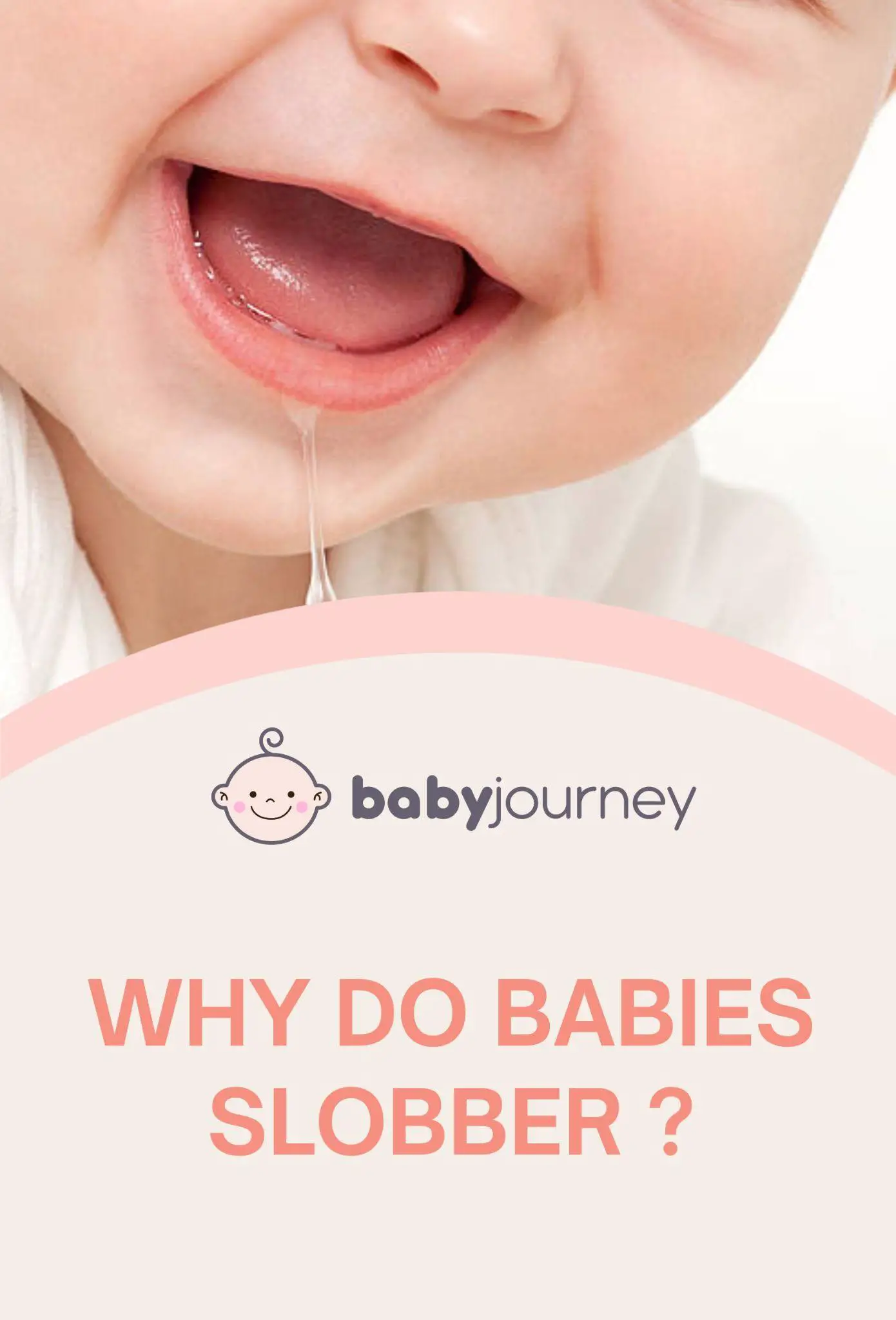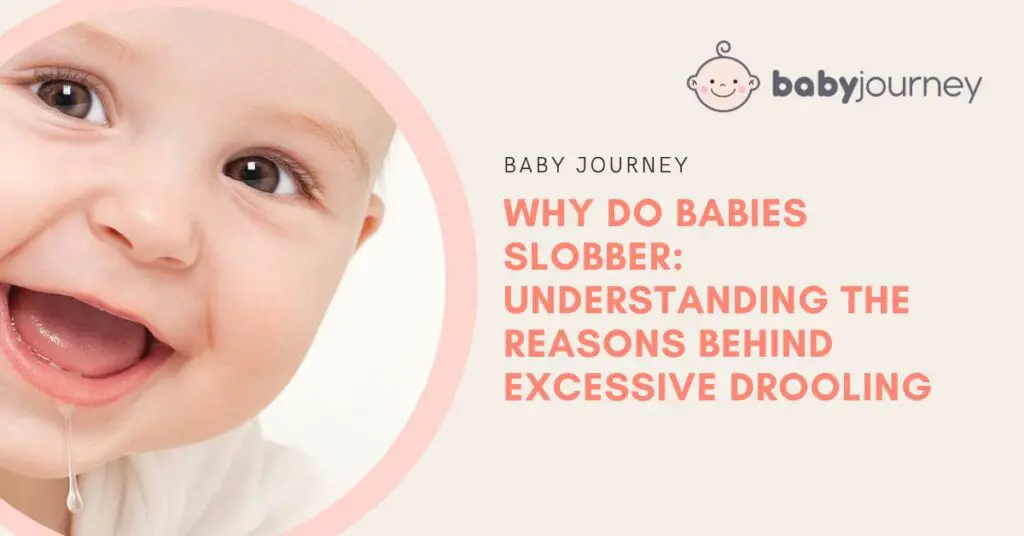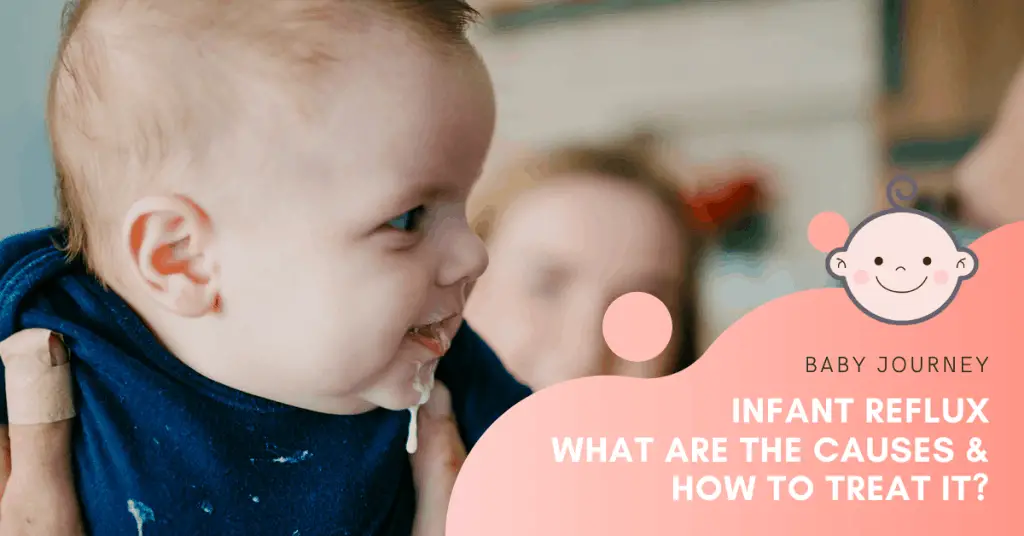Babies drooling or slobbering is a common phenomenon that most parents have to deal with. It is a natural occurrence that is part of a baby’s development process. Babies start drooling around 3-4 months of age, and it can continue until they are about 2-3 years old. While it can be a nuisance for parents, it is a sign that their baby is growing and developing as expected.
There are several reasons why babies drool. One of the most common causes is teething. When a baby starts teething, their gums become sore and swollen, which can cause them to drool excessively. Babies also drool when they are hungry or when they see food. As they get older, they may drool when they are excited or when they are concentrating on something. In some cases, excessive saliva production may be a sign of an underlying medical condition, such as acid reflux or allergies. However, in most cases, it is nothing to worry about and is just a normal part of a baby’s development.
Parents can take steps to manage their baby’s drooling, such as using bibs to keep their clothes dry and wiping their face regularly to prevent skin irritation. It is also important to ensure that their baby’s chin and neck are kept clean and dry to prevent rashes and infections. While it can be frustrating for parents, drooling is a natural part of a baby’s development, and it will eventually pass.
What is Baby Slobber?
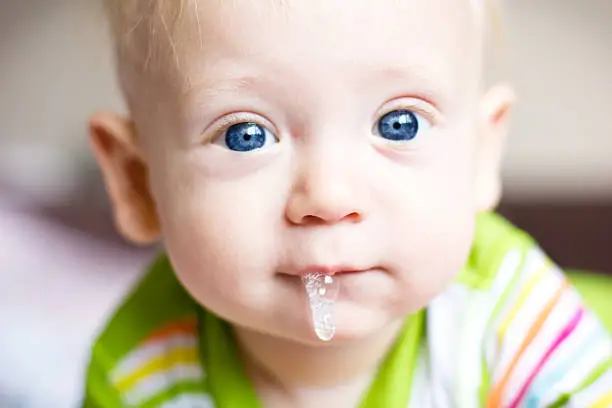
Baby slobber, also known as drooling, is a common occurrence in infants and young children. It is the unintentional release of too much saliva from the mouth, which can lead to wetness around the mouth and chin. Babies start drooling as early as three months of age, although some may start earlier or later.
Drooling is a natural process that helps babies in the development of their digestive system. Saliva aids in the breakdown of food before it reaches the stomach, and it also helps to wash the mouth and break down bacteria, preventing the baby from getting sick.
There are several reasons why babies slobber, including teething, developmental milestones, and medical conditions. Teething is one of the most common reasons for drooling in babies. Although babies don’t usually get their first tooth until they are between six and eight months old, the teething process starts much earlier. When a tooth first begins to break through the gums, there is an increase in saliva production, and the baby may drool excessively.
Developmental milestones, such as learning to talk or trying new foods, can also cause babies to slobber. Babies may drool when they are excited or curious about something, or when they are trying to communicate with others.
In some cases, medical conditions such as cerebral palsy or Down syndrome can also cause excessive drooling in babies. If parents notice that their baby is drooling excessively, they should consult with their pediatrician to rule out any underlying medical conditions.
Why Do Babies Slobber?
Babies are known for their adorable chubby cheeks, tiny fingers, and slobbering mouths. But why do babies slobber? While there is no single answer to this question, there are a few reasons why babies drool.
Drooling at 2 Months
At around 2 months old, babies start to drool as part of their normal development. This is because their salivary glands are starting to work, and they are learning how to swallow saliva. As a result, you may notice that your baby is drooling more than usual and may need to change their bib or clothing more frequently.
Drooling at 3 Months
By 3 months old, babies are becoming more active and interactive with their environment. They start to explore objects with their mouths and hands, which can lead to increased drooling. Additionally, at this age, babies are starting to produce more saliva as they prepare for teething.
Drooling When Teething
One of the most common reasons why babies slobber is teething. Teething can start as early as 3 months old, and the process can last until the child is 2-3 years old. As the teeth start to push through the gums, babies may experience discomfort and pain, which can lead to increased drooling. Additionally, the extra saliva can help soothe the gums and make the teething process more comfortable.
While drooling is a normal part of a baby’s development, excessive drooling can be a sign of other issues. If your baby is drooling excessively or has other symptoms, such as a fever or rash, you should consult with your pediatrician.
In summary, babies slobber for a variety of reasons, including normal development, exploration, and teething. While it may be messy, drooling is a natural part of a baby’s growth and development.
Is Excessive Drooling Normal?
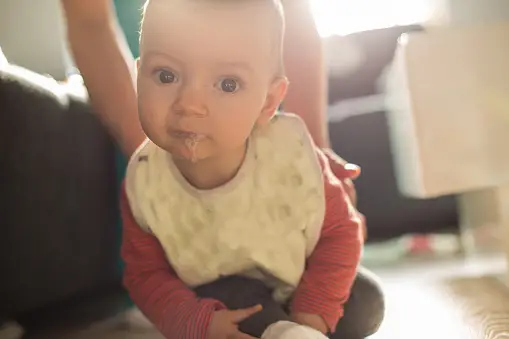
Babies drool a lot, and it’s a normal part of their development. However, excessive drooling can be a cause for concern. Here are some things to keep in mind:
- Drooling is common in babies. Infants don’t have full control of their swallowing and the muscles in their mouth, which can cause them to drool. This is especially apparent at 3 to 6 months of age, when getting what they need is centered on the mouth.
- Excessive drooling can be a sign of teething. Even though babies don’t have teeth at the age of 6-8 months, their teething process starts quite early, which is why they begin drooling as early as 3 months of age. If your baby is around the age when teeth usually come in and drooling excessively, it’s likely that teething is the reason behind it.
- Excessive drooling can be a sign of other issues. While excessive drooling is usually nothing to worry about, it can be a sign of other issues. For example, some babies drool excessively because they have a blocked tear duct or a sinus infection. Others may have a neurological condition that affects their ability to swallow.
- Talk to your pediatrician if you’re concerned. If you’re concerned about your baby’s drooling, talk to your pediatrician. They can help you determine if there’s an underlying issue that needs to be addressed.
In summary, while excessive drooling can be a cause for concern, it’s usually nothing to worry about. If you’re concerned, talk to your pediatrician to determine if there’s an underlying issue that needs to be addressed.
Is Excessive Drooling a Sign of Cerebral Palsy?
Excessive drooling is a common condition in babies and young children, and it is usually not a cause for concern. However, excessive drooling can also be a sign of cerebral palsy, a neurological disorder that affects movement and muscle coordination.
According to the Cleveland Clinic, drooling is normal in newborns and babies up to two years old. The production of excess saliva usually reaches its peak between three to six months of age, and the symptoms may intensify during the teething process. However, if excessive drooling persists beyond the age of two, it could be a sign of an underlying medical condition, such as cerebral palsy.
Cerebral palsy is a group of neurological disorders that affect movement, muscle tone, and coordination. It is caused by damage to the developing brain, and it can occur during pregnancy, childbirth, or the first few years of life. Usually, the signs of cerebral palsy appear in the first few months of life, but many children are not diagnosed until age 2 or later.
Excessive drooling is one of the early signs of cerebral palsy. Children with cerebral palsy may have difficulty swallowing, which can lead to drooling. They may also have weak or spastic muscles in the face, mouth, and throat, which can make it difficult to control saliva. In addition to excessive drooling, other signs of cerebral palsy include developmental delays, problems with movement and coordination, and intellectual disabilities.
If a child is exhibiting signs of excessive drooling, it is important to consult a healthcare provider. While excessive drooling is usually not a cause for concern, it can be a sign of an underlying medical condition, such as cerebral palsy. A healthcare provider can perform a physical examination and order any necessary tests to determine the cause of the excessive drooling and develop an appropriate treatment plan.
Is Excessive Drooling a Sign of Bell’s Palsy?
Bell’s palsy is a condition that affects the facial muscles, causing one side of the face to droop. It is caused by the inflammation of the facial nerve, which controls the muscles of the face. This inflammation can lead to weakness or paralysis of the facial muscles, making it difficult to smile, close the eye on the affected side, or even drooling.
While drooling is a common symptom of Bell’s palsy, it is not always present. In fact, only about 10% of people with Bell’s palsy experience excessive drooling. However, if a baby is drooling excessively, it is important to rule out other possible causes, such as teething, before considering Bell’s palsy as a potential cause.
Other symptoms of Bell’s palsy include:
- A sudden weakness or paralysis on one side of the face
- Difficulty smiling or making facial expressions
- Drooping of the eyelid or corner of the mouth
- Loss of the sense of taste
- Increased sensitivity to sound in one ear
If a baby is experiencing any of these symptoms, it is important to seek medical attention right away. A doctor can perform a physical exam and other tests to determine the cause of the symptoms and develop an appropriate treatment plan.
In most cases, Bell’s palsy is temporary and will resolve on its own within a few weeks to months. However, in some cases, treatment may be necessary to help improve symptoms and prevent complications. Treatment may include medications, physical therapy, or surgery, depending on the severity of the condition.
Overall, while excessive drooling can be a symptom of Bell’s palsy, it is not always present. If you notice your baby drooling excessively or having any other symptoms of Bell’s palsy, it is important to seek medical attention right away to determine the cause and develop an appropriate treatment plan.
Is Excessive Drooling a Sign of Autism?
Excessive drooling is a common issue among babies and young children. While it is often a normal part of their development, it can also be a sign of an underlying medical condition. One condition that is often associated with excessive drooling is autism.
Autism is a neurodevelopmental disorder that affects a person’s ability to communicate and interact with others. It is often diagnosed in early childhood, and one of the common signs of autism is excessive drooling. This is because children with autism may have difficulty with muscle control, including the muscles in their mouth and throat that control saliva production.
It is important to note that not all children who drool excessively have autism. In fact, there are many other conditions that can cause excessive drooling, including teething, allergies, and neurological disorders. However, if excessive drooling is accompanied by other signs of autism, such as delayed speech or social interaction, it may be worth discussing with a healthcare provider.
If a child is diagnosed with autism, there are several treatment options available to help manage their symptoms, including occupational therapy, speech therapy, and medication. It is important to work closely with a healthcare provider to develop a treatment plan that is tailored to the child’s individual needs.
In conclusion, excessive drooling can be a sign of autism, but it is not always the case. If a child is drooling excessively and showing other signs of autism, it is important to discuss these concerns with a healthcare provider. With early diagnosis and intervention, children with autism can receive the support they need to reach their full potential.
When to Consult a Doctor

While drooling is a normal part of a baby’s development, excessive drooling can be a sign of an underlying medical condition. Here are some signs that may indicate you should consult a doctor:
Signs of Dehydration
If your baby is not having enough fluids intake, excessive drooling can cause dehydration. If you observe that your baby’s mouth is extremely dry, their urine is dark, or they appear lethargic, it’s advisable to seek medical advice.
Fever
If your baby has a fever along with excessive drooling, it may be a sign of an infection. A fever is generally defined as a body temperature of 100.4 degrees Fahrenheit (38 degrees Celsius) or higher. If your baby has a fever, you should consult a doctor.
Difficulty Swallowing
If your baby is having difficulty swallowing, it may be a sign of an underlying condition. This can be indicated by choking or gagging when attempting to eat or drink. If you notice your baby is having difficulty swallowing, you should consult a doctor.
Rash or Irritation Around the Mouth
Excessive drooling can cause a rash or irritation around the mouth, known as drool rash. If the rash becomes severe or does not go away, you should consult a doctor to treat drool rash.
Excessive Drooling Beyond a Certain Age
While drooling is common in babies, excessive drooling beyond a certain age may be a sign of an underlying condition. If your baby is older than six months and still excessively drooling, you should consult a doctor.
In general, if you are concerned about your baby’s excessive drooling, it is always best to consult a doctor. They can help determine if there is an underlying condition that needs to be addressed.
Tips for Managing Baby Slobber
Babies drool a lot, and managing their slobber can be a challenge for parents. Here are some tips to help you manage your baby’s drooling:
Keep your baby’s skin clean and dry
Wipe your baby’s face and neck frequently, especially after feedings. Use a soft, gentle cloth to avoid irritating your baby’s delicate skin. You can also use a bib to catch the drool and keep your baby’s clothes dry.
Use a moisture barrier ointment
Before bedtime, apply a moisture barrier ointment around your baby’s mouth and cheeks to prevent drool from getting in contact with their skin. Your pediatrician can guide you to the creams that are best for your drooling baby, depending on their age.
Provide your baby with safe teething toys
Teething is one of the main reasons why babies drool excessively. Providing your baby with safe teething toys to chew on can help soothe their gums and reduce drooling.
Keep your baby’s bedding dry
Babies drool at night as well, and wet bedding can cause discomfort and skin irritation. Use a waterproof mattress pad and change your baby’s bedding frequently to keep them dry and comfortable.
Be mindful of your baby’s clothing
Choose clothing that is easy to change and clean, and avoid clothing with tight collars or that can irritate your baby’s skin. You can also use a bib to protect your baby’s clothing from drool.
By following these tips, parents can manage their baby’s drool and keep them comfortable and happy.
Conclusion
In conclusion, drooling is a normal part of a baby’s growth and development. Babies drool while exploring and taking in most of their needs through the mouth. It aids in the breakdown of food before it reaches the stomach, and saliva breaks down bacteria and washes the mouth, preventing babies from getting sick.
Excessive drooling in babies and toddlers can be caused by teething, developmental stages, and hypersalivation. It is important to keep the baby clean and dry to avoid skin irritation and infection. A bib can be used to absorb the drool and protect the baby’s clothing.
Parents can also encourage their babies to chew on teething toys or clean, cold objects to soothe their gums. If the drooling is too much or accompanied by other symptoms such as fever or rash, parents should consult a pediatrician to rule out any underlying medical conditions.
In summary, drooling is a natural and necessary process for babies. Parents can take steps to manage excessive drooling and provide comfort during teething stages.
